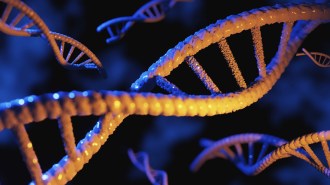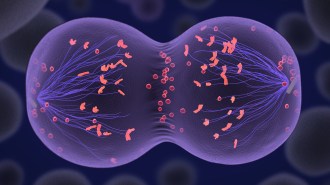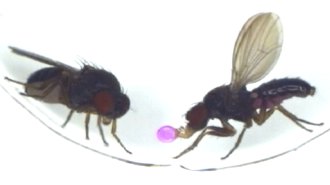How chemical exposure early in life is ‘like a ticking time bomb’
Diet as an adult determined whether mouse pups exposed to BPA developed health problems

NEWBORN REPROGRAMMING Newborn mice exposed to a chemical in plastics during the first five days of life can have very different health outcomes depending on their diets as adults.
Jaroslav74/shutterstock





